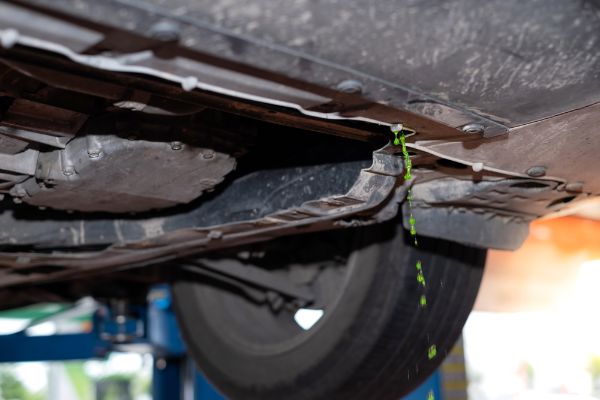A radiator leak can cause serious engine problems. One of the first signs is a puddle of coolant under the vehicle. Coolant is often green, orange, or pink and has a sweet smell. Low coolant levels or frequent overheating also indicate a possible leak. Steam from under the hood means coolant is escaping and the engine is at risk of damage.
Common Causes of Radiator Leaks
Corrosion weakens the radiator, leading to small cracks or holes. Rust buildup inside the system damages the metal over time. Loose or damaged hoses can also leak coolant. A failing radiator cap may not maintain proper pressure, forcing coolant to escape. External damage from road debris can create visible cracks or punctures.
When to Repair or Replace the Radiator
A small leak might be repaired with sealant or hose replacement. If the radiator has multiple leaks, severe corrosion, or large cracks, replacement is necessary. A failing radiator puts the engine at risk of overheating, leading to costly damage. Delaying repairs can result in coolant loss and potential engine failure.
Warning Signs You Shouldn’t Ignore
Ignoring a radiator leak can lead to major engine problems. Some warning signs require immediate attention to avoid costly repairs:
- Frequent Overheating – If the temperature gauge rises quickly, the radiator may not be cooling the engine properly.
- Low Coolant Levels – Constantly refilling coolant indicates a leak somewhere in the system.
- Discolored Coolant – Rust or debris in the coolant can signal internal corrosion.
- White Smoke from Exhaust – Coolant leaking into the engine may cause thick white smoke from the tailpipe.
- Sweet Smell Inside the Cabin – A heater core leak can cause a distinct odor inside the vehicle.
Catching these signs early and visiting Allen's Auto in West Rutland helps prevent severe engine damage and expensive repairs.
Preventing Radiator Leaks
Routine maintenance helps extend the life of the radiator. Checking coolant levels and inspecting hoses for wear prevents major leaks. Flushing the cooling system removes rust and debris that cause corrosion. Using the correct coolant type and mixture keeps the system running efficiently. A well-maintained radiator helps avoid overheating and costly repairs.

 Reviews
Reviews